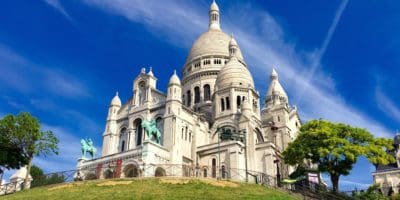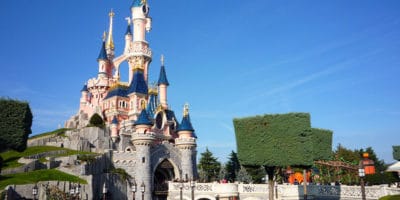Preparing for the Netherlands: 35 Essential Tips Before you Go
The Netherlands is a country located in Northwestern Europe with overseas territories in the Caribbean. It is a country that is renowned for many things such as being the second-leading company of exporting beer and cheese. Tourists like visiting this country for the amazing city known as Amsterdam which is filled with many museums and vibrant activities and nightlife.
Their official language is Dutch but most of the people can also speak English. It is one of the member countries of the European Union. In this article, I am going to discuss some of the things you should know about the Netherlands before traveling.
1. Netherlands has the Highest Population Density in Europe
The Netherlands is a country located in Northwestern Europe with overseas territories in the Caribbean. It is the largest of the four constituent countries of the Kingdom of the Netherlands. It is a population of 17.9 million people all living within a total area of 41 850 km square.
The Netherlands has a population density of around 526 people per km square the Netherlands still boasts a high density but isn’t quite the leader. According to statistics in August 2020, the total population of the Netherlands was 17,140,098. This makes the Netherlands the second-most densely populated country in the EU (Only behind Malta) and one of the most densely populated countries in the world.
2. Netherlands Official Language
Dutch is the primary and most widely spoken official language in the Netherlands. It is the dominant language used in government, education, media, and everyday life. Almost 90% of everyone in the Netherlands speaks Dutch fluently.
Their secondary official language is West Frisian which is spoken by over 450, 000 people. English is also widely spoken and well understood in the Netherlands mostly in urban areas and among the young generation.
3. Currency Used in the Netherlands
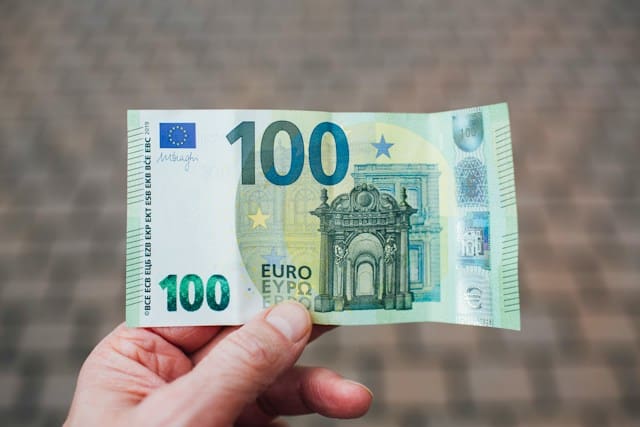
Photo by Markus Spiske on Unsplash
The official currency used in the Netherlands is the Euro which is usually abbreviated as EUR. It has been a member state of the Economic and Monetary Union (EMU) since 1999 and so it is expected of them to use this currency. Although many countries share this currency, their payment methods and ways to set up financially as a resident vary from country to country.
Euro was introduced in the Netherlands on 1st January 2002 after it had existed as “book money” for three years. The currency serves as a symbol of economic unity and cooperation among the European Union member states that have also adopted it as their official currency.
4. Climate in the Netherlands
The Netherlands is located in the “Temperate Zone”. In winter, the temperatures are about 3 degree Celsius while in summer the temperatures are approximately 17 degrees Celsius. Coastal regions have more hours of sunshine than inland regions and a relatively less annual and diurnal temperature range.
It is also recorded that the 30-year annual average temperature in the center of the country is 10 degrees Celsius and the mean annual average of 52 degrees is close to 4 degrees Celsius. Rainfall is evenly distributed throughout the year but at times it is slightly more precipitation falls during the summer months.
5. Mode of Transport in the Netherlands

Photo by Joey Kyber on Unsplash
The Netherlands offers a diverse and developed mode of transport. Transport is one of the key factors in the economy. It has a dense and modern infrastructure that facilitates transport with road, rail, air, and water networks.
The Netherlands has one of the densest road networks in the world compared to Germany and France. They have trains which are fast and efficient and connect cities and towns. They are comfortable and reliable.
The Netherlands also has Trams which are found in big cities like Amsterdam, Rotterdam, and The Hague. Buses are used for short distances and offer a friendly budget. Cycling is also one of the most famous modes of transport in the Netherlands. They have air travel and also ferries.
6. Restaurants in Netherlands
The Netherlands is a big city to miss out on some amenities such as restaurants. People from different parts of the world travel to the Netherlands and in such cases, they must develop their restaurants to make them easily accessible and the best place to be. It is important to make reservations to get the best services that you want.
Most of these restaurants have installed WIFI for people to enjoy and be able to browse the internet. Examples of these restaurants include Amsterdam Restaurant, The Hague Restaurants, Maastricht Restaurant, and Elindhoven Restaurants. They are all accessible to road networks.
7. Traffic Rules in the Netherlands
Every country has set aside rules for drivers to avoid causing accidents and congestion on roads. If you are planning to visit the Netherlands and you surely know you are going to drive it is important to know the rules. In the Netherlands, you have to drive on the right and overtake on the left.
You must have a valid driving license. You can start taking driving lessons at the age of 16 years. At age 17, you take a practical exam and drive accompanied after attaining a driving license. From the age of 18, you are allowed to drive independently. If you violate the driving rules you are either arrested or some fines are imposed on you.
8. Markets in the Netherlands
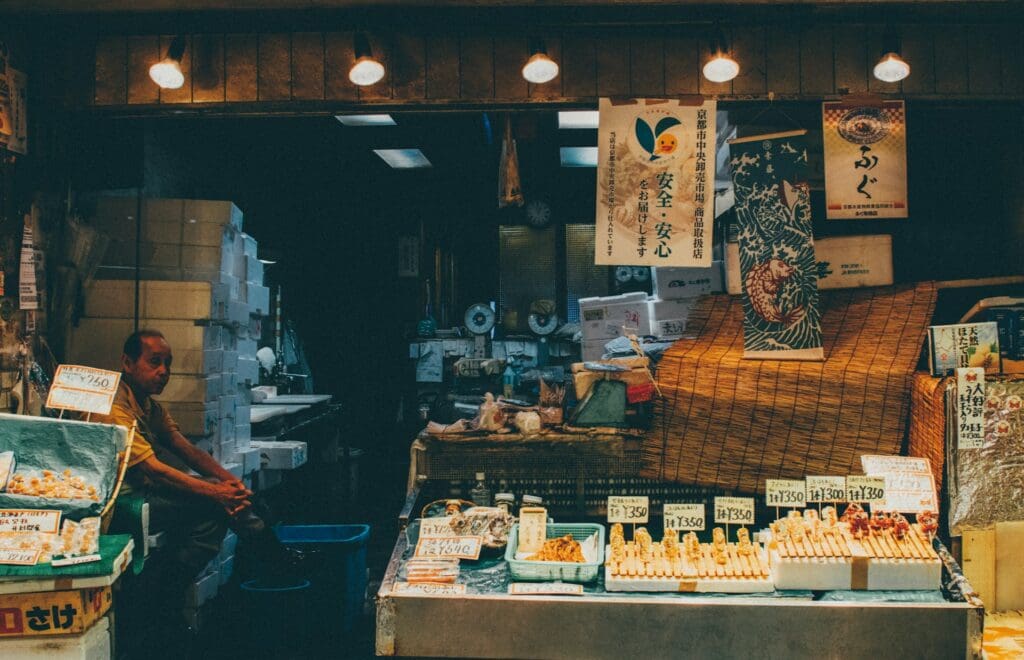
Photo by Jose Murillo on Unsplash
Every town, city, or country has markets where people buy fresh vegetables and fruits, artifacts, flowers, cheese, herbs and spices, and clothing among others. When visiting the Netherlands you should consider visiting these markets places and seeing the beautiful products being sold.
They are sold at a favorable price so you can purchase some for memories to remind you that you once visited the Netherlands. Some of these markets include Ghent Friday Market, Brocantmarkt Sint-Jacobs, Boekenmarkt Ajuinlei, Aarturfeesten Hooglede, and Albert Cuyp Market among many others.
9. Greeting in Netherland
When visiting a new place it is important to learn some simple things like greetings just in case you are stranded you can get comfortable with someone and get help. Some common words include “Hoi” which means hi or “Hoe gaat het?” meaning how are you.
“Alles goed?” (Is everything alright?). “Goedemorgen (Good morning), goedendag (Good day), Goedenmiddag (Good afternoon) and Goedenavond (Good evening). With this, you can get in any room or approach anyone comfortably.
10. Religion in Netherland

Photo by Jose Murillo on Unsplash
A statistic proved that Christianity has the biggest population in the Netherlands. Other regions include Hindus and Islam among others. They are open for people to go and pray and you can also meet priests and other servants who minister in them. If you wish to attend the services, you can check online the order of the services and get to minister with them.
Examples of cathedrals in the Netherlands include St. John’s Cathedral- Hertogenbosch, St. Bavo Cathedral, Utrecht Cathedral, and St. Martin’s Cathedral among many others. Some churches include Westerkerk in Amsterdam, Nieuwe Kerk, and Oude Kerk among others.
11. Geography of Netherlands
The Netherlands is located in Northwestern Europe. It is known for its flat landscape, windmills, many cycling routes, canal systems, and tulip fields. It is a small country with an approximate area of 41, 545km squared and was ranked as 131st country with a population of 17.4 million.
It has a density of 521km square making it the second most densely populated member of the European Union after Malta. It is ranked the 12th most densely populated country in the world.
12. Emergency Numbers in the Netherlands
It is important to know the emergency number in the Netherlands just in case you get to a situation where you are stranded and you need help. Some of these situations may be fire, accident, and medical issues. 112 is the main emergency number for all types of emergencies in the Netherlands.
You can use it anywhere as long as you are in the Netherlands, free of charge even using a mobile phone without credit. Other emergency numbers you can call include 088-112 2 112 for GZA an organization responsible for healthcare within the reception centers.
13. You Need to Carry Your Passport
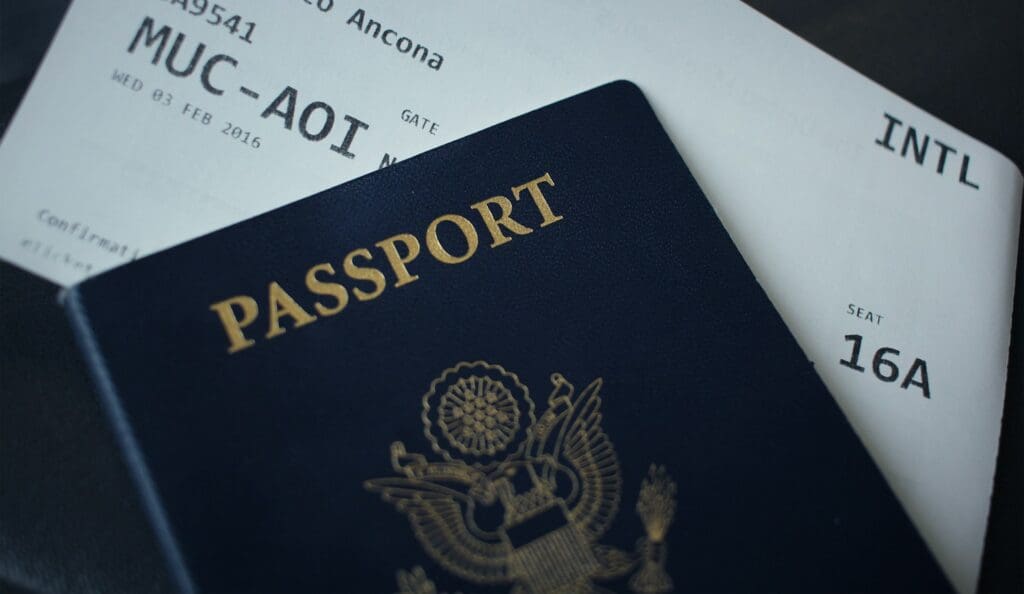
Photo by Maarten van den Heuvel on Unsplash
If you are a non-resident of the Netherlands you need to carry your passport for identification. You also need to ensure your passport is valid for at least three months beyond your planned departure date from the Netherlands.
Passport will help you get by-pass in almost all the places. It is a legal requirement, and if found without it you may be fined, deported to your own country, or even denied entry in some places.
14. You Need a Visa If You are a Non-Resident of the Netherlands
If you are a citizen of countries within the European Union, the European Economic Area (EEA), and Switzerland you do not need a visa if you are to stay in the Netherlands for a short stay of about 90 days. If you are a citizen from those countries and stay for less than 90 days you only need a valid passport or a national ID card.
If you are not from those countries and you are planning to stay in the Netherlands you will most likely need a visa. Some of the visas you might need are a work visa, student visa, or a family visa depending on your reason for visiting.
15. Drug Laws in the Netherlands
Every country has set aside laws on drug use this is because drugs cause nuisance and crime. You are not allowed to buy alcohol in the Netherlands until you are 18. Also, it is against the law to possess, sell or produce drugs.
All drugs, including cannabis and harder drugs like cocaine and heroin, are illegal. There are bans on no smoking in public places, hospitals, schools offices and there are consequences for violating the laws. You can either be fined, arrested, or even prosecuted. However, the Netherlands tolerates the sale of soft drugs such as in coffee shops.
16. There are More Bicycles in the Netherlands than People
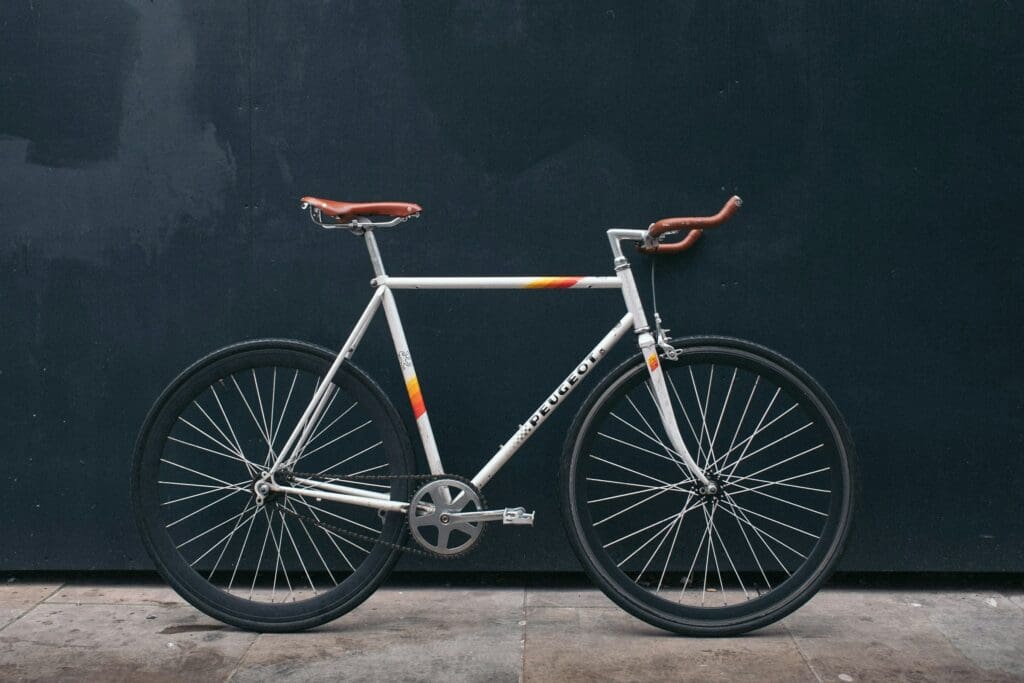
Photo by Robert Bye on Unsplash
This is a fascinating fact but it is true, there are more bicycles in the Netherlands than people. According to 2023 statistics, the Netherlands has approximately 17.6 million people and estimation suggests that there are around 23 million bicycles in the Netherlands. One reason as to why cycling is much in the Netherlands is because the land is flat making it a comfortable and efficient mode of transport.
The country also has established an extensive network of dedicated bike lanes and paths. The Dutch government actively promotes cycling through infrastructure investment and has also set up education programs to teach how bicycles ride. Bicycles are important in this country as they are a source of income for some families.
17. There are Over 1000 Windmills in the Netherlands
The Netherlands is known for its numerous windmills. Some of these windmills are used to turn millstones to mill grain and pump water to drain polders to reclaim land from the sea to create more land area. However, some of these windmills are fully functional, and for them to operate and maintain some civic organizations promote them. Some of these organizations include De Hollandsche Molen, Stichting De Fryske Mole, and Gilde van Vrjwilligw Molenaars.
These windmills have cultural and historical importance for the Netherlands as they represent ingenuity, adaptability, and a deep connection to the natural environment. Types of windmills in the Netherlands include Standerdmolen, Wipmolen, Spinnenkopmolen, Tjasker, Paltromolen, Grondzeiler, Beltmolen, and Stellingmolen.
18. Netherlands is the World’s Second-Biggest Beer Exporter

Photo by engin akyurt on Unsplash
The Netherlands is the world’s second-biggest beer exporter after Mexico in terms of both value and volume. It exports millions of liters of beer annually all over the world. The Netherlands is ranked first in the European Union in the export of beer. Being the second biggest beer exporter comes with many advantages.
It plays a big part in the Dutch economy by creating job opportunities and contributing to the overall trade revenues. Some of the biggest breweries from the Netherlands including Heineken, Amstel, and Bavaria contribute to the country’s export success. They also have a good impact on the culture as their diverse beer styles and brewing traditions are globally recognized and appreciated.
19. The Netherlands is an Exporter of Food and Agricultural Products
Ranking keeps on varying but the Netherlands holds the top five position exporter of food and agriculture despite its small size. They are known for exporting products like dairy, flowers, beer, and vegetables. Its horticulture sector has an extensive logistic network.
Things that they have incorporated to ensure that they rank in exporting food and agricultural products is that they have incorporated innovative farming techniques. They have advanced techniques such as hydroponics and vertical framing to maximize crop growth and efficiency.
They have also developed infrastructure such as a good network of roads, ports, and logistics facilities. They have also set aside good schools and universities for research and focusing on agricultural science and technology.
20. Get Travel Insurance
When traveling in a new country as a non-resident or even a resident, it is recommended to carry your travel insurance. Make sure your insurance covers medical expenses, trip cancellation, and lost luggage. Anything can happen on the trip and for you to avoid confusion moments it is good to be safe. A medical cover is important as it will help you in case of medical emergencies.
Healthcare in the Netherlands is high-quality but expensive. A medical cover might not pay for all the bills but at least will cover a big percentage. Travel insurance can offer protection against trip cancellations, delays, or interruptions. Travel insurance can also offer compensation for lost, stolen, or damaged luggage.
21. Pack For the Weather as the Weather is Unpredictable
You all know that the weather patterns of a country keep on changing. You might be traveling in winter thinking that the season will remain as you expected but it changes and by then, you are forced to go for shopping things you had not planned for.
For such reasons, you are supposed to pack your bag with clothes that help you in all seasons. Remember to pack comfortable shoes and clothes. Always remember to check the weather forecast and be prepared for flexibility.
22. Exchange Your Currency
The Netherlands accepts both cash and cards. Most businesses in the Netherlands such as supermarkets, restaurants, and public transportation accept credit and debit cards using chip-and-pin technology making it easy to make payments.
However, small shops, markets, and street vendors accept only cash. In this case, you need to carry some cash with you. To avoid cases of not understanding how to pay using your currency, it is important to exchange your currency immediately after arriving in the Netherlands. Most of their financial institutions allow currency exchange at favorable exchange rates. Carry some euros with you for small purchases or emergencies.
23. Rules of Using a Bike in the Netherlands

Photo by Patrick Hendry on Unsplash
Bicycles are the most used mode of transport in the Netherlands. They have set aside rules to avoid accidents and they should be followed. All bicycles should have a working bell that you should use to warn pedestrians and other cyclists. At times when the visibility is not clear, it is a must to use white front and red rear lights when cycling.
Just like with cars, the cyclists should stick to the right side of the path unless overtaking. It is prohibited to use headphones, mobile phones, and other hands-free devices while cycling. Cycling under the influence of alcohol or drugs is illegal and carries a lot of punishment in found in such a scenario.
24. Be Respectful of Local Customs
Being respectful of local customs is important when visiting any new country. Showing respect builds rapport with locals and creates a more pleasant experience for everyone. It is important to respect the local customs as it will help you understand the culture of the place and avoid criticizing them. Having respect will also reflect positively on you and your home country.
Lacking respect for the local customs can offend even if it is not meant to. Some of these customs include direct communication, respect for personal space, following rules set aside such as avoiding smoking in some areas, respecting queues, casual dress code, and openness to diverse cultures among others.
25. Tipping is not Expected
Tipping is not expected in most situations in the Netherlands. The reason why tipping is not expected is that in most service industries they earn decent wages that are high higher than in other countries. Again, service charges and taxes are usually already included in the bill so there is no need to add extra cash.
Tipping is okay, in most restaurants it is not expected but appreciated therefore a small tip of around 5% is sufficient, or with tax drivers rounding up the fare slightly is acceptable. However, you should not be pressured to tip if you don’t feel comfortable. Tipping is not mandatory.
26. Learn about Dutch Holidays
It is important to learn about Dutch holidays when you are in the Netherlands. Understanding Dutch holidays allows you to connect with the local culture on a deeper level. It is important to learn about the holidays as some holidays involve closing businesses, and there are disruptions with public transportation.
Also understanding the holidays will allow you to participate in the festivities and create lasting memories. Some Dutch holidays you should be aware of include King’s Day (Koningsday) which is celebrated on the 27th of April, Liberation Day is celebrated on the 5th of May, and Sinterklaas (Saint Nicholas) which is celebrated on the 5th of December.
27. When You go to the Netherlands You Should Consider Visit Amsterdam
Amsterdam is a city in the Netherlands known for its attractions like the Rijksmuseum, Van Gogh Museum, Anne Frank House, and the historic canal district. Amsterdam has approximately 75 museums, 55 concert halls, and 141 art galleries. The city buzzes with a unique blend of history, artistic expression, and contemporary life, especially at night. You should enjoy bicycle cycling in Amsterdam.
28. Visit the Keukenhof Gardens in the Netherlands
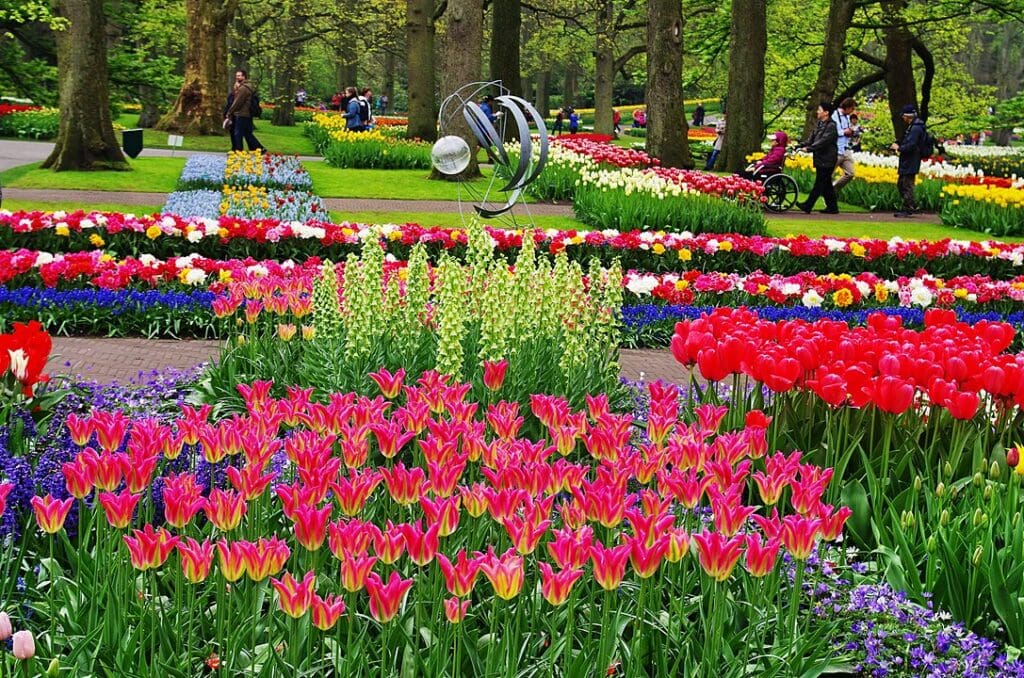
Balou46, CC BY-SA 3.0, via Wikimedia Commons
Keukenhof also known as the Garden of Europe is one of the world’s largest flower gardens situated in the municipality of Lisse in the Netherlands. Keukenhof is widely known for its tulips and it also features numerous other flowers including Hyacinths, daffodils, lilies, roses, carnations, and irises.
When in the Netherlands, visiting the Keukenhof Gardens is a must- so for any flower lover. It has over 7 million bulbs that bloom into a vibrant spectacle of colors and fragrances every spring. The Gardens are only open for 8 weeks between mid-March and mid-May May making the experience more special.
29. Consider Visiting Rijksmuseum in the Netherlands
Rijksmuseum is a National museum of the Netherlands that is dedicated to Dutch arts and history and is located in Amsterdam. Visiting Rijksmuseum should be on your list for several reasons. Rijksmuseum has housed over 8000 artworks that offer a journey through Dutch art history. Some of the famous paintings such as Rembrandt’s “The Night Watch”, Vermeer’s “Milkmaid”, and Frans Hals’s “The Merry Family” are stored there.
30. Taste Cheese When You Visit the Netherlands
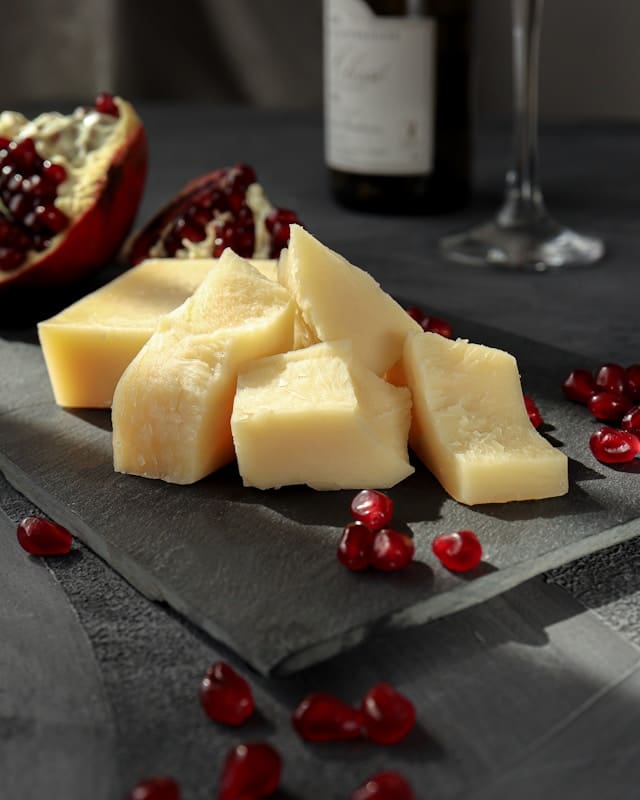
Photo by Aliona Gumeniuk on Unsplash
When you visit the Netherlands, you should consider tasting their cheese. The Netherlands is the second-largest cheese exporter. Cheese making has been an important part of Dutch history for centuries. It has over 1000 cheese varieties exist in the Netherlands each with unique flavors and textures. It plays a big role in local cuisine and daily life experiencing it firsthand offers a deeper understanding of the country.
31. Culture in Netherland
Dutch people are known for their strong culture and everyone travelling there should respect them. Their culture is a blend of historical influences, unique traditions, and good attitudes. They are known for their direct communication style which can sometimes be seen as rude since they are very honest and transparent.
They are also known for having a long history of religious and social tolerance. Their society tends to be less formal and hierarchical. They value work-life balance and use their free time for leisure and socializing. They emphasize equality and inclusivity.
32. Mode of Dressing in the Netherlands
Dressing is a very important component as it reflects who you are. The Netherlands has a more formal and polished image when it comes to its dress code. In formal settings especially workplaces, men prefer suits and ties or a blazer and an official pant. Shoes are well polished and a watch is essential. For women, they prefer official dresses or a good skirt and a blouse.
On casual days you will find a man wearing just a pant with a shirt. Blazers that time are an option and shoes you will find rocking on either sneakers, loafers, or nice sandals. For women too, they know how to dress casually and still look good. Clothes in the Netherlands are of high quality and if they are tailored, they ensure they fit well.
33. Market Days in the Netherlands

Photo by Annie Spratt on Unsplash
The Netherlands has beautiful markets that are set aside to sell fresh fruits and vegetables, artifacts, cheese, clothes, and many other beautiful products. Each market has set aside its day of opening while others are opened daily. When in the Netherlands you should learn some simple Dutch language words that are used so that you can enjoy your visit in the market such as Graag gedaan (Thank you) and Hoeveel when you are asking about the quantity or price. Bargaining is also acceptable.
34. Museums in the Netherlands
Museums are very important in a country as they attract tourists. The Netherlands has many museums which bring so many people to the country to learn the history of the country and some of the images and the historical artifacts they have preserved. Examples of these museums include the Rijksmuseum, Van Gogh Museum, and Anne Frank House among many others. When you visit the Netherlands attempt to visit the museums.
35. Wildlife in the Netherlands
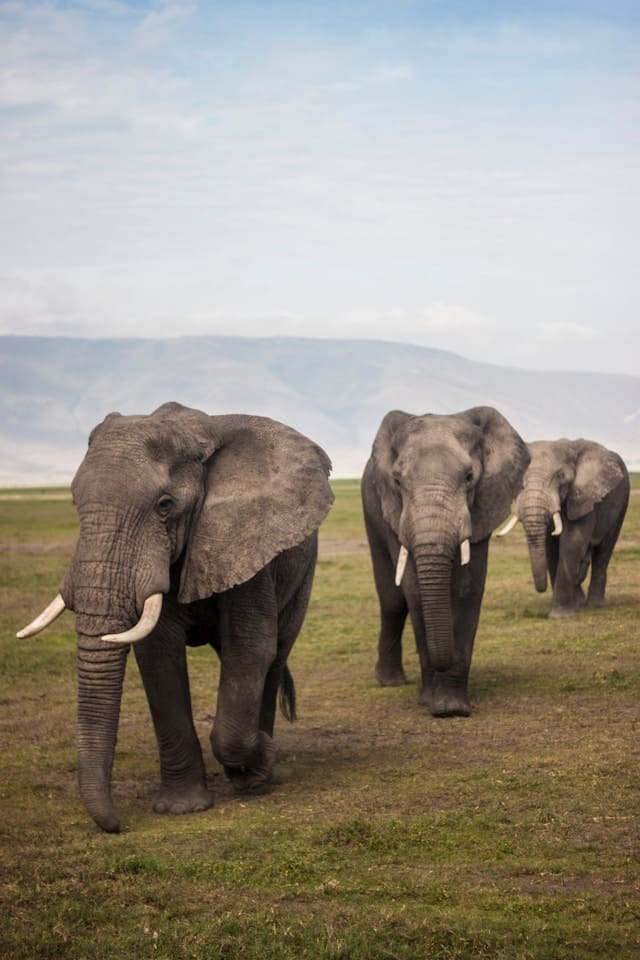
Photo by Matthew Spiteri on Unsplash
Despite its small size, the Netherlands boasts a diversity of wildlife. Some of the mammals you can find in the Netherlands include Red Deer, Harbor seals, otters, and wild boar among many others. Birds include Waders, Geese and ducks, Birds of prey, and songbirds. There are so many animals which you can enjoy in the Netherlands.
As I have discussed above, the Netherlands is a small country but has amazing things that make it amazing to travel. Talk of the well-developed road networks, markets, and a city In the Netherlands known as Amsterdam that is full of vibrant activities. I recommend you to visit and you will surely enjoy your stay.
Planning a trip to Paris ? Get ready !
These are Amazon’s best-selling travel products that you may need for coming to Paris.
Bookstore
- The best travel book : Rick Steves – Paris 2023 – Learn more here
- Fodor’s Paris 2024 – Learn more here
Travel Gear
- Venture Pal Lightweight Backpack – Learn more here
- Samsonite Winfield 2 28″ Luggage – Learn more here
- Swig Savvy’s Stainless Steel Insulated Water Bottle – Learn more here
Check Amazon’s best-seller list for the most popular travel accessories. We sometimes read this list just to find out what new travel products people are buying.

